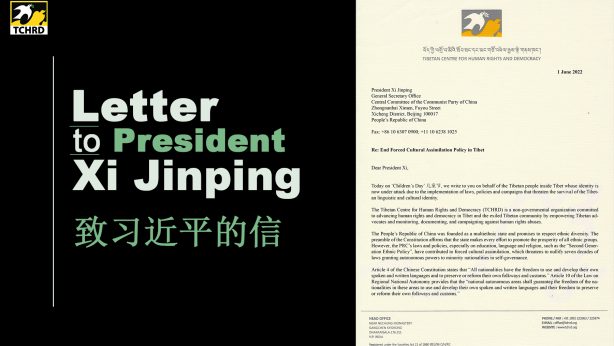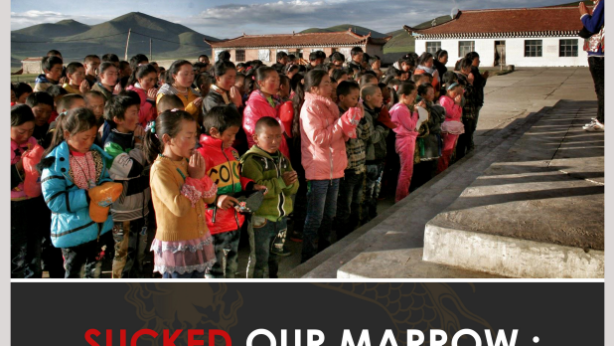China orders Tibetan private schools to be closed and students enrolled in Chinese medium schools in Sershul County

Chinese authorities in Sershul (Ch: Shiqu) County, Kardze (Ch: Ganzi ) Tibetan Autonomous Prefecture, had ordered sometime early this year that all Tibetan private schools must be closed and students enrolled in government schools by 20 April where the medium of instruction is Chinese.
Information obtained by the Tibetan Centre for Human Rights and Democracy (TCHRD) also reveals that Chinese authorities had threatened any possible resistance to the order with imprisonment.
The majority of the schools affected by this order are primary schools located in nomadic communities. This includes six known Tibetan schools, namely Gemang primary school, Bumser primary school, Troshul primary school, Asey primary school, Phendey Chekyong primary school, and Warong primary school. There are about a dozen known Tibetan private schools scattered across the county.
Local Tibetans have submitted petitions against the order citing that those targeted schools are the only available means of Tibetan medium education in the remote nomadic region. Local sources believe that the petition will have little effect and that the authorities have made a definite decision not only to close all private schools but also to demolish the school buildings.
A forthcoming report by TCHRD and Asian Dignity Initiative – “Sucked Our Marrow: Tibetan Education and Language Rights under Xi Jinping” – further reveals that several schools located in Sershul County had faced varying degrees of interferences from the local Chinese authorities since their inception.
One such recently closed primary school had around 130 students and about 20 staff. More than 500 students have graduated from this school. Many went on to earn top scores, especially in Tibetan language and history, in middle and high schools. Local Chinese authorities initially approved the school’s founding as a private school. It lost considerable autonomy, however, in 2013 when the county government appointed a principal and some teachers to work at the school.
In 2017, local authorities downgraded the school, allowing classes to be held only until grade 4. Consequently, teachers teaching grades 5 and 6 lost their jobs, and students in these classes were enrolled in a government school nearby. The school initially controlled its own curriculum, which prioritised traditional Tibetan education subjects like Tibetan history and grammar, along with Chinese and English languages.
In 2020, the school was ordered to adopt the national curriculum and a new Tibetan language textbook was issued, the contents of which “glorified the Chinese Communist Party and the Chinese nation”.
“It is much easier teaching in a private school because one can also teach Tibetan subjects such as Tibetan language and history alongside the mandatory state-compiled textbooks. It is impossible to do so in government schools,” according to a private school teacher in Sershul county.
In addition to teaching at the school, the teacher also taught informal coaching classes on Tibetan language, history and culture every winter when children studying in government schools were on vacation. The winter coaching classes established in 2012 was a collective effort by the teacher and other educated youths disillusioned by the deteriorating language skills of Tibetan students in the state education system. Most of the 200 students in the village studying in middle schools in the county had attended the winter classes.
Following the spate of school closures, parents and teachers in Sershul share a significant concern that the last avenues for teaching Tibetan language and history to young Tibetans are now being closed.
Since 2020, Chinese authorities in Tibetan and Inner Mongolian areas have implemented the unified Chinese textbook system making Chinese medium education mandatory in schools at all levels and grades. Both state and private schools are required to adopt the new sinicized textbooks, which mostly contain Party propaganda and exclude contents relevant to Tibetan culture and language.
At least since 2012, private initiatives to promote Tibetan language and culture have been suppressed, and individuals advocating for Tibetan language and cultural education have been detained and tortured. Private educational institutions previously approved by the authorities are being closed down while monastic institutions are forced to prioritise Mandarin Chinese teaching and propagation.
Chinese laws and policies are incapable of protecting the education and language rights of minority nationalities because they are implemented as part of a wider nation-building strategy geared towards creating a zhonghua minzu (‘Chinese national’) identity with a single language and identification with the Chinese nation-state. This situation is aggravated by the criminalisation of peaceful dissent and an absolute lack of domestic judicial recourse.


